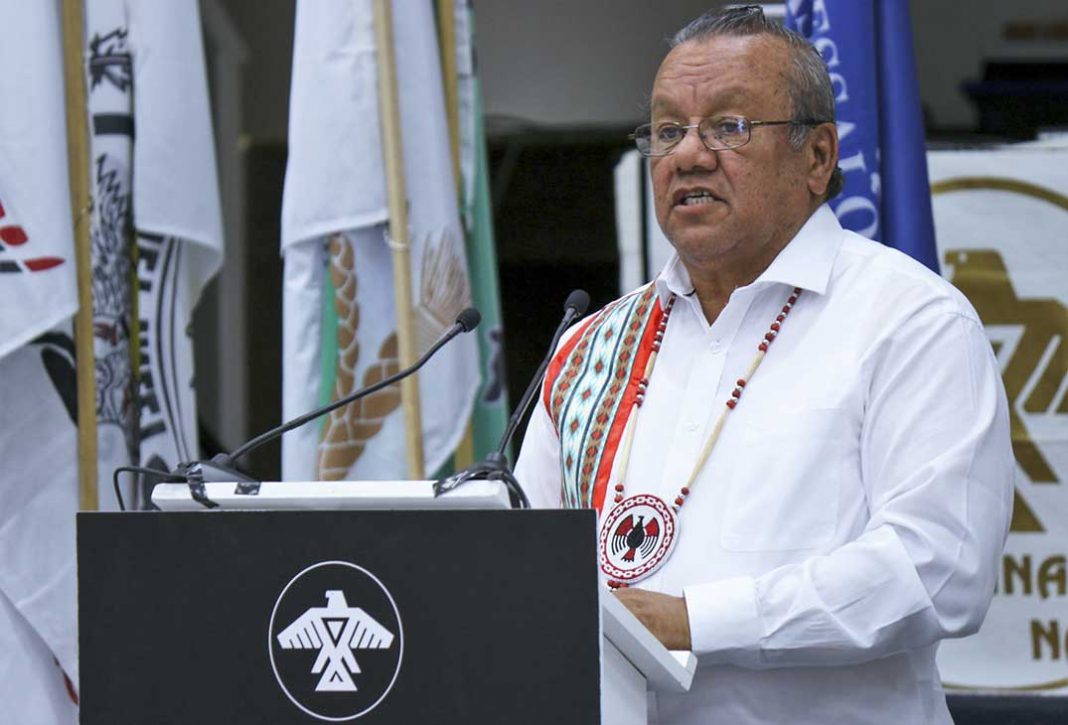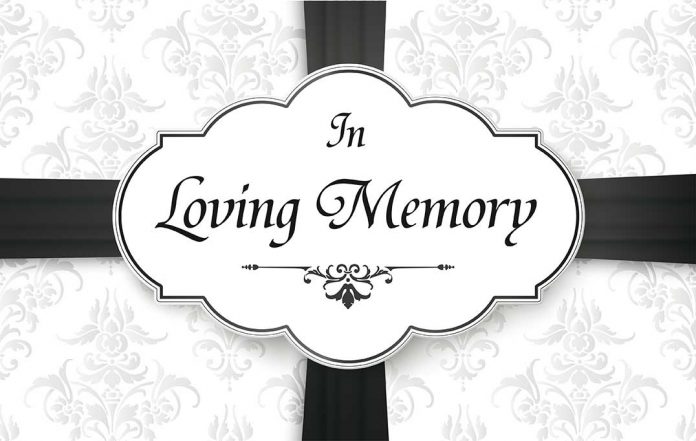M’CHIGEENG – Former Anishinabek Nation Grand Council Chief Glen Hare may have lost his bid to retain his leadership position to Mississauga Chief Reg Niganobe in the recent election, but after a lifetime dedicated to public service Mr. Hare is not ready to retire just yet. Mr. Hare announced his intention to seek the position of Ontario regional chief.
“I am excited for my next venture,” he said. Mr. Hare said he had consulted with his family about a run for the Assembly of First Nations post even before the Anishinabek election. “It was a ‘what if’ discussion,” he said. “First and foremost it is important to have your family’s support.”
Having secured the nod from his family, Mr. Hare is moving on to the leadership of Ontario’s 133 First Nations.
A new Ontario regional chief will be elected in the first-ever virtual traditional ceremony at the 47th Annual All Ontario Chiefs Conference on June 15 to 17, hosted by Grand Council Treaty #3. The theme of this year’s conference is ‘Healing for Generations to Come.’ Current Ontario Regional Chief RoseAnne Archibald has announced that she would not be running for re-election.
After serving as chief of M’Chigeeng First Nation, Mr. Hare was elected by the chiefs of the Anishinabek Nation in 2006 to wear the deputy grand chief headdress, serving under former Aundeck Omni Kaning Chief Patrick Madahbee until Mr. Madahbee retired in 2018. Mr. Hare then ran and secured the position of grand council chief, a position he has held for the past three years.
Mr. Hare said he was proud of his accomplishments while working in leadership positions within the Anishinabek Nation, but one key portfolio really stands out for him. “Child welfare,” he said. “That’s the big one.” Mr. Hare has been a strong advocate for the care of children for over two decades. “We were doing it in a big way for the last 20 years, even more so now,” he said, adding “no more removals.”
He asserted that implementation of the recommendations of the Truth and Reconciliation Commission (TRC) remain prerequisites for reconciliation—“action not words.”
“I don’t want to see more studies,” he said. “We have been studied enough. Legal opinions? We have them.”
Mr. Hare noted the recent announcement by the federal government on child welfare is a step forward, just one of the many “huge steps that have taken place over the past 10 years” as Indigenous communities have taken ever increasing child welfare roles over their children.
As for the repatriation of sovereign powers to the First Nations, moving First Nation communities out from under the Indian Act, Mr. Hare notes that this has been a goal of First Nation leadership since even before he got involved in politics.
“The government is moving in the right direction where we were hoping it would,” he said. “They are starting to give us what we have been asking for, let’s jump on it.”
He noted that the current First Nation Governance Agreement (FNGA) is a win-win for communities. “If communities don’t want it, that’s their choice,” he said, but he pointed out that the FNGA is approved in five-year increments, with the ability for a community to withdraw should they decide it is not for them. “You still have that option,” he said. “You don’t lose nothing.”
The benefit is that First Nations will be able to implement “laws, not bylaws,” he said. “If there is one thing I have learned from my years in leadership, it is that bylaws don’t mean nothing.”
Education is another area where Mr. Hare is proud of his legacy. “It’s another big one,” he said, noting that advanced education is the key to future success. “It is hope,” he said.
When it comes to dealing with the past, Mr. Hare said that Canada must come to reconcile itself with the truth. “I know horror stories,” he said, “but they have to be shared.”
When it comes to deciding the future course for Indigenous communities and the greater diaspora that is the urban Indigenous population, Mr. Hare is adamant. “We have to be part of the process,” he said, reiterating that process must be focussed on concrete action. “No more studies,” he said. “Let’s not go there. We want to do something. We have been through hell and we are still here.”
When it comes to Canada’s part, Mr. Hare was conciliatory, to a point, but only to a point. “You inherited it,” he said. “But just because you inherited it, doesn’t mean you are not responsible.” The nation has benefited hugely from its inheritance and the heirs have an obligation that stems from those continued benefits.
Mr. Hare noted that the position of leadership calls for a lot of travel. “You must go to all of the communities, let people know who is responsible,” he said. Travel holds no fears for the veteran Anishinaabe leader. “I’m not scared to travel,” he laughs. “I have been travelling most of my life.”
For Mr. Hare, the journey is far from over. “There is too much left to do,” he said.





